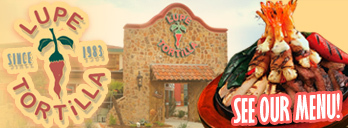CP MOTORSPORTS - TOM HIGGINS: CHICAGO'S SOLDIER FIELD WAS ONCE A NASCAR TRACK
Click here to follow us on Twitter @circletrackplus

What do Fireball Roberts, Curtis Turner, Glen Wood and Tom Pistone have in common with George Halas, Dick Butkus, Walter Payton, Gale Sayers and William "The Refrigerator" Perry?
They all "played" at storied Soldier Field in Chicago.
Halas, Butkus, Payton, Sayers and Perry, of course, are among the most famous of the NFL’s legendary Chicago Bears, whose home field is the great arena dating to 1926.
Roberts, Turner, Wood and Pistone each won NASCAR events there in the summers of 1956-57.
It’s true.
Almost 60 years ago NASCAR leader Big Bill France staged stock car races on a track built around the football field.
Auto racing began at the massive stadium in 1935 on a cinder track. Later a board track was erected, and then pavement was put in.
Racing ended at the arena in 1970.
Soldier Field, first proposed in 1919, was dedicated to the nation’s veterans of World War One.
The asphalt oval where NASCAR drivers competed was listed at a half-mile, but Chicago writer Stan Kalwasinski, who authored a fine article tracing the history of motor racing at Soldier field, contends the layout probably was closer to 3/8ths-mile.
It wasn’t much bigger than the long-enduring track at Bowman Gray Stadium in Winston-Salem, a tight, flat oval of two-eighths of a mile now famous among motorsports TV viewers as “The Madhouse.”
NASCAR’s long-ago visits to Soldier Field come to mind because the sanctioning body’s top series is in the Windy
City this weekend at Chicagoland Speedway for the MyAFib Risk 400. It’s athe first race in the season-closing “playoff” for the rich championship bonus.
Chicagoland, a 1.5-mile track, opened in 2001. Winners there include Dale Earnhardt Jr., Jeff Gordon, Ryan Newman, Kyle Busch, Mark Martin, David Reutimann, Brad Keselowski, Kevin Harvick and Tony Stewart.
Chicago native Pistone, who has long lived and operated a racing business in Charlotte, was NASCAR’s first winner at Soldier Field.
Pistone drove his own Chevrolet to victory in a Convertible Division race there in June of 1956, beating Turner to the flag.
“The racing at Soldier Field was very much like that at Bowman Gray,” recalls Pistone. “Lots of beating and banging and hot tempers.”

On July 21 of ’56 Roberts took a 200-lap triumph at the track, followed by Jim Paschal and Ralph Moody in a Grand National Division event. That circuit is the forerunner to today’s Sprint Cup Series.
Later in ’56 Turner won a grueling 500-lap convertible race at Soldier Field, topping his buddy Joe Weatherly, the runnerup, and three-time "ragtop" circuit champion Bob Welborn.
Wood, destined to gain his greatest fame as a team owner, won NASCAR’s finale at Soldier Field in June of 1957. This, too, was a race among convertible drivers.
According to the splendid NASCAR historian, Greg Fielden, Roberts "beat back a stellar field and dodged water puddles left by an intermittent rain" to take the only Grand National show at Soldier Field.
The fabulous Fireball, destined to lose his life in 1964 due to injuries suffered in a World 600 crash at Charlotte Motor Speedway, led a 1-2-3 Ford sweep.
Fielden notes in his five-volume set of books on NASCAR that the race produced a fifth straight loss for the Chrysler operation of Carl Kiekhaefer, which at times in that era was unbeatable.
Kiekhaefer drivers Speedy Thompson, Frank Mundy and Buck Baker finished fourth through sixth in Dodges. Other noted drivers in a field of 25 included Lee Petty, Paul Goldsmith, Billy Myers, Herb Thomas, Pistone and a promising young Illinois driver from Elmhurst named Fred Lorenzen.
The career of "Fearless Freddie" brought him to a factory-backed Ford ride with the legendary Holman-Moody team, based in Charlotte. Winning 26 races and 33 poles from 1961-67, the blond driver was tagged with the nickname "The Golden Boy." He was inducted into the NASCAR Hall of Fame in Charlotte in January. Roberts’ average
speed in taking the checkered flag at Soldier Field was 61.037 mph. When Harvick scored at Chicagoland in 2002 his winning average speed was 136.832 mph. Jimmie Johnson qualified for the 2005 race there at 188.147!
How times have changed
…




